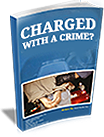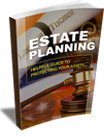What Are The Common Offenses People Are Usually Charged With?
Interviewer: What are the most common crimes that people that you’ve helped are accused of?
Ben Kelsen: The majority of crimes these days in the state of New Jersey somehow or other are revolving around drugs. That’s what’s happening. Is that happening in every case? No. As the economy gets bad and has been bad, there are financial crimes that come up. But the vast majority of crimes that are the very root of the issue are mostly drug-related. There are things that are financially related, where somebody does something because they just do not have any money and they have to pay the bills.
But when we say that the root of it all is drugs: if a person is in possession of drugs, that’s obviously self-explanatory. But very often there’s somebody who is an addict, who’s using, and does things that are improper because of that addiction.
What are Levels of Offenses in New Jersey?
Interviewer: In New Jersey they seem to have strange names for the different types of offenses, like “disorderly persons.” So can you go to the basic levels of offenses, what they mean when someone gets caught up in them, and what they are facing generically?
Ben Kelsen: Absolutely. Most of us are familiar with the concept of someone with a misdemeanor from watching television or movies or things like that.
In New Jersey, for whatever reason, and honestly I honestly don’t know the reason, when they were putting together the state system they decided to use different names. So for example, what is called in most jurisdictions a “felony,” meaning a furious criminal act, in New Jersey it’s referred to either as an “indictable offense” or a “criminal charge”It is the same weight and is considered to be a felony by other states and technically speaking it has all the markings of a felony, but we call it something different.
What is referred to in other jurisdictions as a “misdemeanor,” which is a less serious crime – as some would call a ‘petty criminal” or “quasi-criminal” act – in New Jersey it’s referred to as a disorderly persons offense. That is not something that should be confused with disorderly conduct, which is a different type of an act and has its own statute. A disorderly person’s offense means that the person was doing something that was a quasi-criminal or a petty criminal act.
Interviewer: What about below misdemeanors – are they called infractions? What would they be called?
Ben Kelsen: So we also have things called municipal ordinances and, again, it would depend in New Jersey, as there are many jurisdictions; we have boroughs, villages, townships, and cities. So the general term would be municipal ordinances, which are basically quality of life sort of issues. They can be things like what’s required for a permit to put a deck on the back of your house. In theory, a person who got a permit to put a six-foot deck and instead builds an eight-foot deck could be in violation of a municipal ordinance.
When a person has a party in their house and it gets too noisy and the police are called, a person has a block party without getting a permit, or a person who is trying to sell stuff out of a hot dog cart without proper certification or licensure could also be considered to be in violation of a municipal ordinance.


